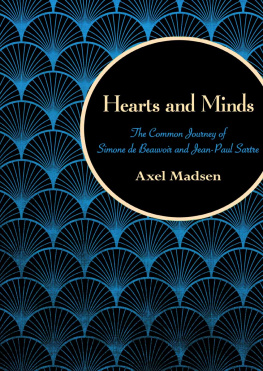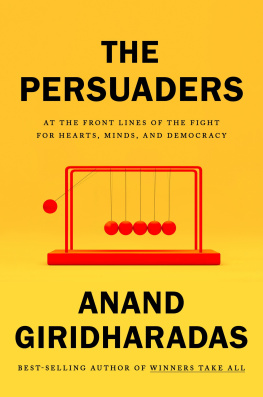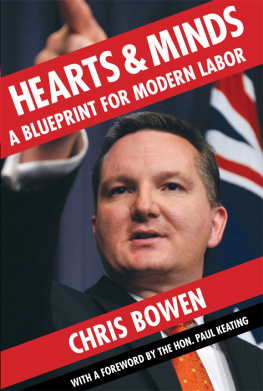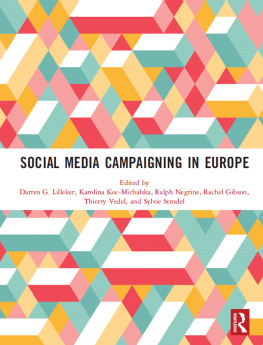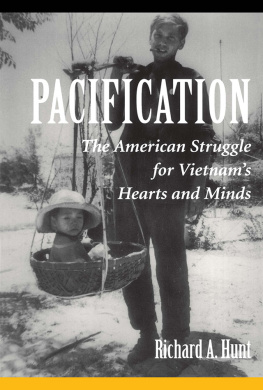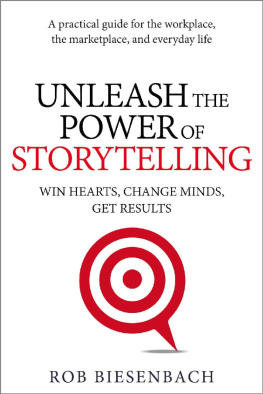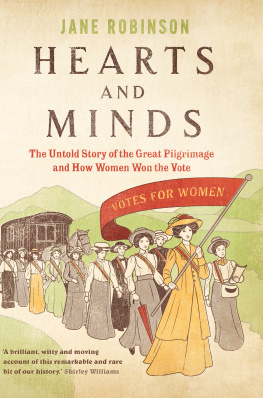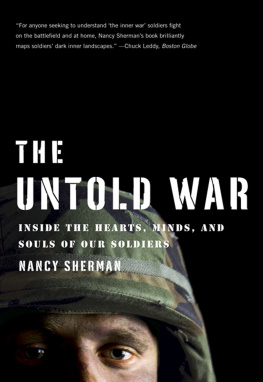Ted Brader - Campaigning for Hearts and Minds
Here you can read online Ted Brader - Campaigning for Hearts and Minds full text of the book (entire story) in english for free. Download pdf and epub, get meaning, cover and reviews about this ebook. year: 2020, publisher: University of Chicago Press, genre: Politics. Description of the work, (preface) as well as reviews are available. Best literature library LitArk.com created for fans of good reading and offers a wide selection of genres:
Romance novel
Science fiction
Adventure
Detective
Science
History
Home and family
Prose
Art
Politics
Computer
Non-fiction
Religion
Business
Children
Humor
Choose a favorite category and find really read worthwhile books. Enjoy immersion in the world of imagination, feel the emotions of the characters or learn something new for yourself, make an fascinating discovery.

- Book:Campaigning for Hearts and Minds
- Author:
- Publisher:University of Chicago Press
- Genre:
- Year:2020
- Rating:5 / 5
- Favourites:Add to favourites
- Your mark:
- 100
- 1
- 2
- 3
- 4
- 5
Campaigning for Hearts and Minds: summary, description and annotation
We offer to read an annotation, description, summary or preface (depends on what the author of the book "Campaigning for Hearts and Minds" wrote himself). If you haven't found the necessary information about the book — write in the comments, we will try to find it.
Campaigning for Hearts and Minds — read online for free the complete book (whole text) full work
Below is the text of the book, divided by pages. System saving the place of the last page read, allows you to conveniently read the book "Campaigning for Hearts and Minds" online for free, without having to search again every time where you left off. Put a bookmark, and you can go to the page where you finished reading at any time.
Font size:
Interval:
Bookmark:

STUDIES IN COMMUNICATION, MEDIA, AND PUBLIC OPINION
A series edited by Susan Herbst and Benjamin I. Page
Campaigning for Hearts and Minds
How Emotional Appeals in Political Ads Work
TED BRADER
The University of Chicago Press
CHICAGO AND LONDON
The University of Chicago Press, Chicago 60637
The University of Chicago Press, Ltd., London
2006 by The University of Chicago
All rights reserved. Published 2006
Printed in the United States of America
15 14 13 12 11 10 09 08 4 5
ISBN: 0-226-06988-5 (cloth)
ISBN: 0-226-06989-3 (paper)
ISBN-13: 978-0-226-06988-3 (cloth)
ISBN-13: 978-0-226-06989-0 (paper)
ISBN-13: 978-0-226-78830-2 (ebook)
Library of Congress Cataloging-in-Publication Data
Brader, Ted.
Campaigning for hearts and minds : how emotional appeals in political ads work/Ted Brader.
p. cm.(Studies in communication, media, and public opinion)
Includes bibliographical references and index.
ISBN 0-226-06988-5 (cloth : alk. paper)ISBN 0-226-06989-3 (pbk. : alk. paper)
1. Political psychology. 2. Advertising, political. 3. Communication in politics. 4. Persuasion (Psychology) 5. Emotions and cognition. I. Title. II. Series.
JA74.5.B 69 2006
324.7'3dc22
2005009159
 The paper used in this publication meets the minimum requirements of the American National Standard for Information SciencesPermanence of Paper for Printed Library Materials, ANSI Z39.48-1992.
The paper used in this publication meets the minimum requirements of the American National Standard for Information SciencesPermanence of Paper for Printed Library Materials, ANSI Z39.48-1992.
For my parents, Jeanine and Jim Forney and in memory of my father, Kenneth
Contents
Tables and Figures
Tables
Figures
Acknowledgments
As snow falls on another winter morning in Ann Arbor, Michigan, my mind willingly wanders to the distant time and place where this project began. Man and nature were in greater harmony, as they are wont to be, on the lush hillsides overlooking the Connecticut River in Hanover, New Hampshire. Over the course of many warm and quiet summer afternoons, I started to ponder the connections between how politicians campaign for office and how our brains make sense of the world. The impetus for this somewhat unconventional line of thinking was a book, recommended by a former teacher of mine, that described new research on the role of emotion in human reasoning and behavior. The relevance of what I was reading to the way voters choose candidates and candidates try to influence those choices seemed obvious, nowhere more clearly than in the realm of political advertising. I thought there might be an opportunity to bring our current understanding of how campaigns appeal to emotions, whatever that was, into line with the latest research from neuroscience. But when I returned to my graduate training that fall, I was surprised to discover there was hardly any current understanding at all. Politicians appeal to emotions? Sure, everybody knew that, and yet they were silent on why and how it mattered. My efforts to break that silence turned into a dissertation and eventually this book.
I am blessed with many friends, colleagues, and mentors who have aided me in this pursuit. So it has been for the entire decade over which this project has evolved. I welcome this opportunity to thank you for all of the advice, support, and encouragement I have received.
I should begin with Roger Masters, the mentor who recommended that book and helped plant the idea for the entire project. From my years at Dartmouth College onward, Roger inspired me with his commitment to interdisciplinary thinking and his gift for boldly connecting distant ideas. He kindled my interest in neuroscience and psychology, opened my eyes to the critical link between science and values, and provided my first exposure to experiments as both subject and investigator. His knack for reaching across disciplines extends to financial resources, as he helped this young political scientist secure support from as unlikely a source as an evolutionary biologist. Of course, the boldness of the connections Roger makes can attract many doubters. I hope to repay a small part of my intellectual debt to him by demonstrating in these pages how such connections improve our ability to see the world right in front of our faces.
As the idea developed into a dissertation at Harvard University, I was fortunate to have the wisdom, confidence, and healthy skepticism of my committee. Mo Fiorina served as the principal advisor and role model. From him I learned to appreciate good social science, clear writing, and fine wine (though not nearly enough of the latter). He helped me to secure funding, insisted that I keep making progress, and was open to the possibility that emotion might matter even to a rational choice theorist. I always suspected this was somehow linked to those teary-eyed reflections on what the Proposition 13 campaign had meant to a young professor and California homeowner years earlier. I am especially grateful for his hospitality, which took many forms, during the final memorable months of writing at Stanford University.
Steve Ansolabehere was essential to the project. I simply could not have run experiments without his experience and creativity. During hour-long meetings, my hand literally cramped trying to write quickly enough to record the flood of suggestions he generously poured out. As I worried about the design and the headaches of data collection, Sid Verba shared comforting stories with lessons about resourcefulness and perspective. His gentle doubts also elicited constructive anxiety as he first worried the experiment was too subtle and then worried the effects were too big.
My debts extend well beyond the primary circle of advisors. For advice on the project at various stages, I thank Chris Achen, John Brehm, Ann Crigler, Alan Gerber, Marty Gilens, Doris Graber, Don Green, Vince Hutchings, Shanto Iyengar, Marion Just, Jon Krosnick, Russ Neuman, Pippa Norris, Vincent Price, Sam Popkin, Wendy Rahn, Paul Sniderman, Walt Stone, and Bill Zimmerman. I am very grateful for the feedback I received from those who read earlier drafts of this work in whole or in part, including Nancy Burns, Don Kinder, Skip Lupia, Mike MacKuen, George Marcus, Liz Suhay, Nick Valentino, and anonymous reviewers.
Several contributions deserve further recognition. John Aldrich is well known as the very model of collegiality and I too have benefited from his kindness through the years. I am particularly indebted for the timely and invaluable moment of clarity he brought as I worked out the experimental design. David Brady provided advice, meals, money, laughs, his unique brand of tough love, and a spacious office at Stanford with a lovely view of orange trees and other beautiful sights. Im not sure many scholars look back on their final months of dissertation writing as paradise; thanks in part to David, I can. George Marcus, who has done more than anyone to pioneer the place of emotion in political science, displayed extraordinary generosity from the beginning, setting aside time at conferences, responding to email messages promptly, and reading everything I sent his way. In many respects, this book builds on and validates his hard work and devotion to the field. Don Kinder made critical suggestions that fundamentally changed the way I presented the evidence in this book. I didnt take every piece of his advice, but I know the book would be even better if I had. Nick Valentino has been a tireless cheerleader for the project and helped assemble the ads and coding procedures for the content analysis of campaign ads in the penultimate chapter (though he bears no blame for the analysis).
Font size:
Interval:
Bookmark:
Similar books «Campaigning for Hearts and Minds»
Look at similar books to Campaigning for Hearts and Minds. We have selected literature similar in name and meaning in the hope of providing readers with more options to find new, interesting, not yet read works.
Discussion, reviews of the book Campaigning for Hearts and Minds and just readers' own opinions. Leave your comments, write what you think about the work, its meaning or the main characters. Specify what exactly you liked and what you didn't like, and why you think so.

